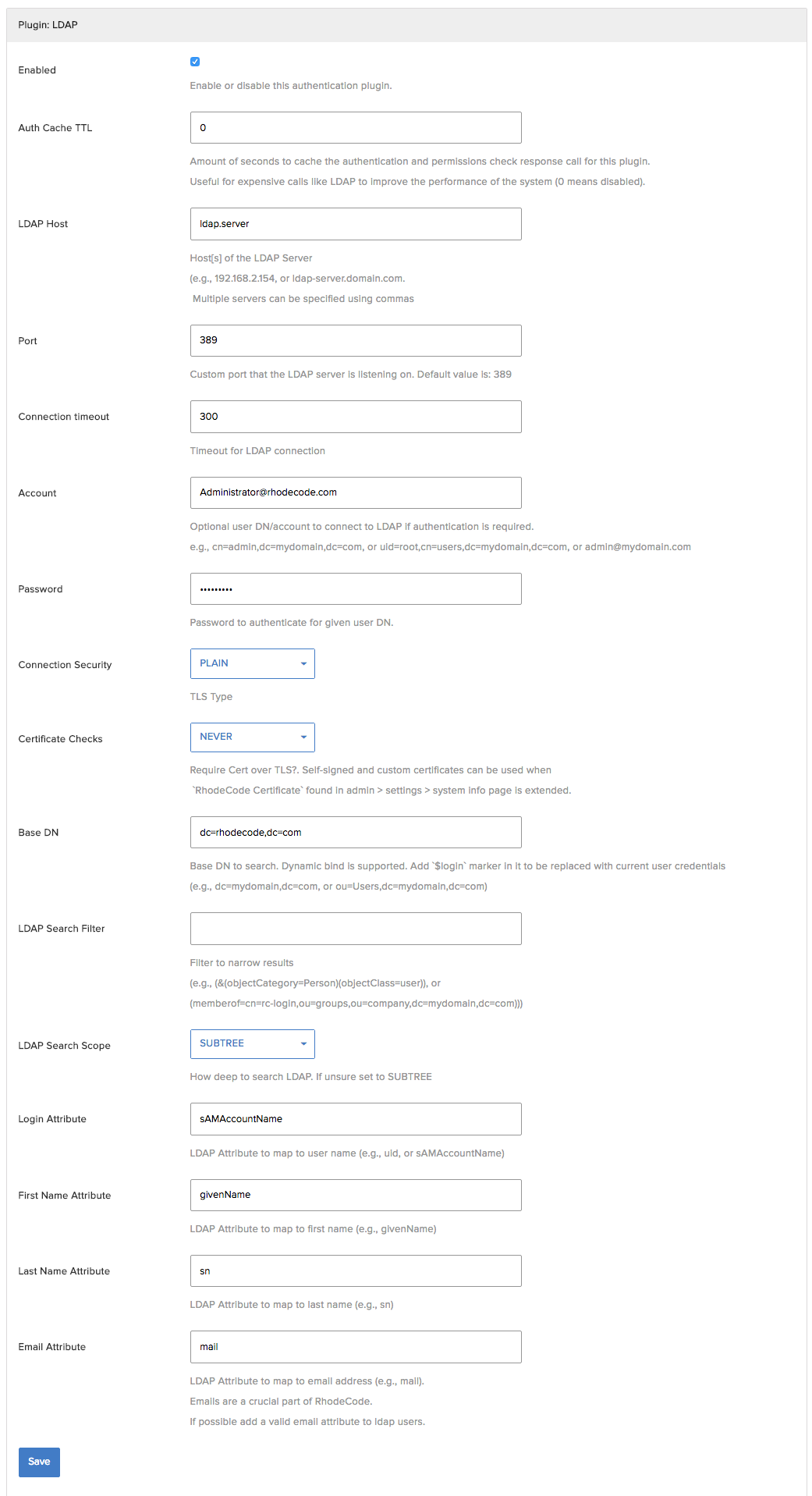LDAP/AD
|RCM| supports LDAP (Lightweight Directory Access Protocol) or AD (active Directory) authentication. All LDAP versions are supported, with the following |RCM| plugins managing each:
- For LDAP or Active Directory use LDAP (egg:rhodecode-enterprise-ce#ldap)
RhodeCode reads all data defined from plugin and creates corresponding accounts on local database after receiving data from LDAP. This is done on every user log-in including operations like pushing/pulling/checkout.
Important
The email used with your |RCE| super-admin account needs to match the email address attached to your admin profile in LDAP. This is because within |RCE| the user email needs to be unique, and multiple users cannot share an email account.
Likewise, if as an admin you also have a user account, the email address attached to the user account needs to be different.
LDAP Configuration Steps
To configure |LDAP|, use the following steps:
- From the |RCM| interface, select :menuselection:`Admin --> Authentication`
- Enable the ldap plugin and select :guilabel:`Save`
- Select the :guilabel:`Enabled` check box in the plugin configuration section
- Add the required LDAP information and :guilabel:`Save`, for more details, see :ref:`config-ldap-examples`
For a more detailed description of LDAP objects, see :ref:`ldap-gloss-ref`:
Example LDAP configuration
# Auth Cache TTL, Defines the caching for authentication to offload LDAP server. # This means that cache result will be saved for 3600 before contacting LDAP server to verify the user access 3600 # Host, comma seperated format is optionally possible to specify more than 1 server https://ldap1.server.com/ldap-admin/,https://ldap2.server.com/ldap-admin/ # Default LDAP Port, use 689 for LDAPS 389 # Account, used for SimpleBind if LDAP server requires an authentication e.g admin@server.com # Password used for simple bind ldap-user-password # LDAP connection security LDAPS # Certificate checks level DEMAND # Base DN cn=Rufus Magillacuddy,ou=users,dc=rhodecode,dc=com # LDAP search filter to narrow the results (objectClass=person) # LDAP search scope SUBTREE # Login attribute sAMAccountName # First Name Attribute to read givenName # Last Name Attribute to read sn # Email Attribute to read email address from mail
Below is example setup that can be used with Active Directory/LDAP server.

